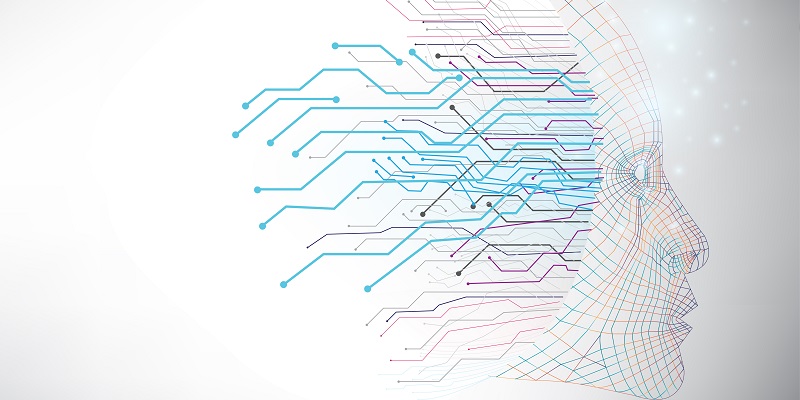Customer experience (CX) is an increasingly important aspect of business. Companies that prioritize exceptional CX have a significant competitive advantage over those that don’t. With more and more customers placing greater emphasis on having personalized interactions with companies, businesses need effective tools to meet this demand.
This is where artificial intelligence (AI) comes into play. AI-powered tools that can provide detailed visibility into every customer interaction, automate routine tasks, and provide valuable analytics can help companies deliver personalized, efficient, and effective customer experiences.
Expectations of Consumers: Personalization and Information
As businesses strive to provide improved customer experiences, they need to understand what customers expect. Two critical expectations of consumers are personalization and access to key information.
Seventy-two percent of consumers expect agents to know all key information about their account, including previous purchases, complaints, and other interactions. This allows customers to pick up from where they left off in their previous interactions without needing to repeat their issues.
Seventy-one percent of consumers expect personalized interactions, where agents can deliver a solution that is tailored to each customer’s unique needs based on their previous interactions.
AI-powered customer experience solutions
To meet these expectations, businesses need to adopt CX solutions that include AI-powered tools. These tools provide a detailed visibility into every customer interaction across all engagement channels, including email, phone, chat, and social media.
Capabilities – Detailed visibility into every customer interaction
AI-powered solutions can analyze all available data, including customer history, preferences, and interactions, to help agents deliver personalized interactions. By providing agents with a complete view of a customer’s history, they can better understand customers’ needs and proactively address any concerns quickly.
Analytics support for agents
AI tools can be used to analyze large amounts of data efficiently. They can identify patterns, trends, and insights that can help agents make informed decisions about how to help customers. By using analytics provided by AI support, agents can proactively offer relevant products or services, make appropriate recommendations, and anticipate customers’ future needs.
The efficiency provided by AI
One of the biggest benefits of AI-powered CX solutions is improved efficiency. AI tools can help overcome simple human mistakes by picking up these often mundane tasks and analyzing huge amounts of data at a very efficient rate. This allows agents to focus on handling more nuanced tasks and take the time to really get to know the root cause of a complex problem.
Benefits of AI tools
There are several key benefits that businesses can gain from adopting AI-powered customer experience solutions.
Efficient data analysis can help overcome human error
The automation of routine CX tasks reduces the potential for human error, which contributes to more accurate data analysis and insights. AI tools can analyze data at a speed far beyond human capabilities, ensuring that insights are discovered quickly and processes are adjusted accordingly.
Allowing agents to focus on nuanced tasks
As mentioned earlier, AI tools can perform routine tasks more efficiently, thereby freeing up agents to focus on more complex and nuanced customer issues that require human interaction. By solving this one data issue, agents can concentrate on helping customers with more nuanced tasks and take the time to really understand the root cause of a complex problem.
Clarity in customer-agent interactions
Customer experience (CX) agents are tasked with many responsibilities. They could benefit from AI technology to screen their calls, which could make interactions between customers and agents clearer and more efficient. AI-powered solutions can eliminate background noise, analyze the tone of the conversation, and surface relevant customer information, allowing agents to focus on delivering high-quality service.
Achieving Value from AI Deployment
A recent study reveals that most respondents whose companies have deployed AI in a specific function report achieving moderate or significant value from that use. AI can help businesses improve customer satisfaction, achieve operational efficiencies, and gain a comprehensive understanding of their customers and business.
Overcoming the Fear of Automation
Many people fear that automation and AI will eventually take over their jobs. However, the integration of AI into CX should not necessarily be viewed as a replacement for human interaction. Instead, AI tools should be viewed as a complementary solution for businesses to leverage in the service process.
Proper training is crucial for the integration of AI into customer interactions
To alleviate fears associated with AI integration, businesses must provide training for customer service representatives to demonstrate how AI can be integrated into their everyday operations. The training should focus on how AI can support and enhance their work. As with any technology, AI is only as useful as the people using it, so investing in employee training is essential.
Developing the best version of customer service representatives
With effective training, customer service representatives can gain the knowledge to use AI as a tool to excel in their jobs and become better at delivering exceptional customer service. They can leverage AI to deliver a more personalized customer experience, freeing up time to focus on other aspects of their job while ensuring that their customers are always happy.
AI-powered customer experience solutions are changing the game for businesses and their customers. These tools have become essential for CX, and can help businesses compete on customer experience and achieve strategic objectives.
By providing targeted engagement to customers at the moments that matter most, AI reinforces the value that customers feel from the business relationship. As a result, businesses that embrace AI as a way to better engage with their customers are positioning themselves for growth and competitive differentiation in an ever-evolving business world.

